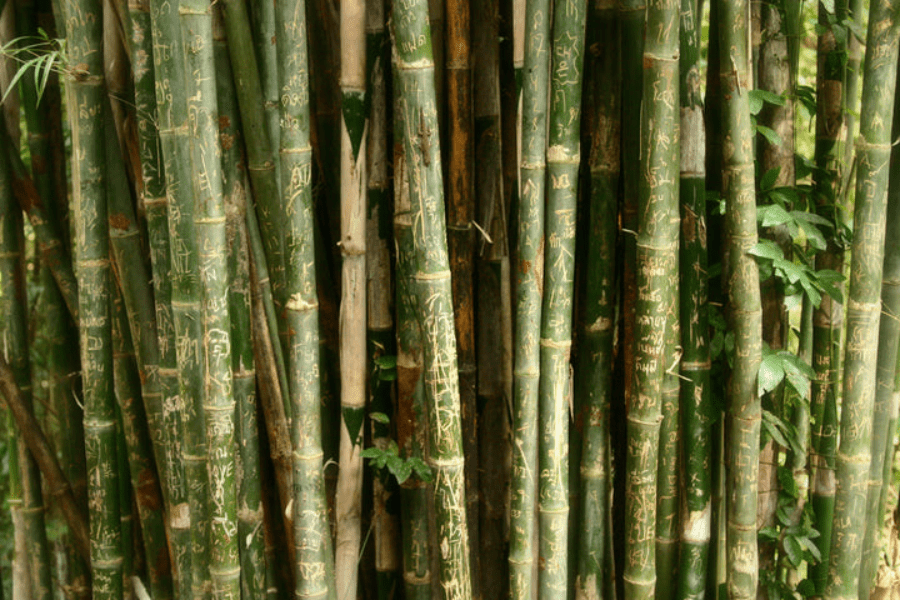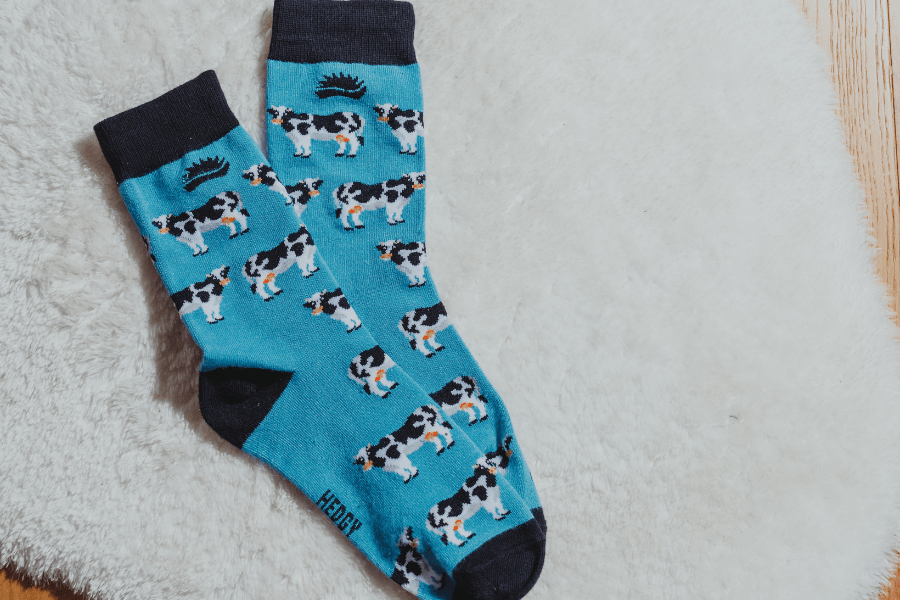
Is bamboo a sustainable material?
Bamboo. A panda’s favourite snack? An eco-friendly alternative to cotton and wool? In this article, we will explore bamboo material, delve into the industry, and discuss whether bamboo is sustainable and how.
What is bamboo?
Bamboo is a type of grass that is native to Asia. It is the fastest growing plant on Earth and is able to grow around 4ft a day.
For centuries, people have been using bamboo for numerous things, such as construction, food, material and medicine - and there’s no wonder, as there are over 1400 documented species of bamboo, all resistant to pests and diseases!
What is bamboo as a material?
Bamboo material is fabric made from bamboo fibres blended with other materials such as organic cotton or other fibres. The blend of fibres produces a versatile textile that is lightweight yet strong, making it easy to transport and utilise in several different manufacturing processes.
In fashion and textiles, bamboo has gained popularity because of its natural sheen and soft texture. The fabric's moisture-wicking and antibacterial properties add to its appeal, making it a preferred choice for socks, t-shirts, bedding, and other textile applications.
Why is bamboo considered sustainable?
According to the United Nations, garment production uses more energy than the aviation and shipping industries, accounting for 10% of global greenhouse gas emissions.
Bamboo fabric has gained popularity in recent years due to its sustainable reputation. Let’s explore why bamboo is considered an eco-friendly fabric.
Renewable
Bamboo is a self-regenerating plant, meaning another sprout grows when a stalk is cut down. Not only does this mean that there is no risk of us running out of it, but the continual growth cycle helps to maintain soil health and prevent erosion.
Water efficient
Bamboo is much more water-efficient than other plants used to make fabric. Once the plant is established, it doesn’t need any irrigation and only needs a third of the amount of water required to grow cotton!
In addition, when manufactured into fabric, cotton requires 200 times more water than bamboo to produce the same amount.
Carbon neutral
Bamboo is widely acknowledged as a carbon-neutral plant, which absorbs the same amount of carbon dioxide from the atmosphere as it releases during harvesting. In addition to this, it also releases more oxygen than most other trees, making it easier for humans and animals to breathe.
Giant tropical bamboo, for example, can remove two tonnes of CO2 from the atmosphere in just seven years, compared to hardwood trees that only sequester one tonne of carbon dioxide in 40 years!
To put that into perspective, according to Guada Bamboo, if 10 million hectares of bamboo were planted on degraded land worldwide, bamboo plants could save over seven gigatons of carbon dioxide in 30 years - more than 300 million electric cars could save in the same time.
Biodegradable and compostable
Another reason that bamboo is considered sustainable is due to its biodegradable and compostable properties. Bamboo can decompose naturally, which can be composted rather than thrown into a landfill.
But is bamboo really sustainable?
Despite the positives of bamboo fabric, there are some disadvantages. One of the most prevalent is the promotion of mono plantations.
Bamboo has a higher profit margin than wood, and a report from the 1990s found that farmers in China cut down 23% of natural forests for bamboo production. Monocultures can be dangerous for local ecosystems because they can decrease biodiversity and soil health and increase the amount of pests and diseases.
However, this is not a worry because bamboo is pest and disease-resistant. In addition to this, one of the ways of manufacturing bamboo clothing is through mechanical processing, which uses natural enzymes to break down the plant fibre. This is a much more eco-friendly way of manufacturing clothing than the chemicals used in other material production.
How Hedgy can help
At Hedgy, our socks prioritise sustainability and are free from harmful chemicals.
We proudly contribute some of our proceeds to support wildlife and environmental causes. So, by choosing our socks, you're not only treating your feet but also making a positive impact on the environment.
Explore our collection of wildlife and farm-animal socks and embrace the comfort, style, and eco-consciousness that come with Hedgy Socks – where every step supports a cause!

